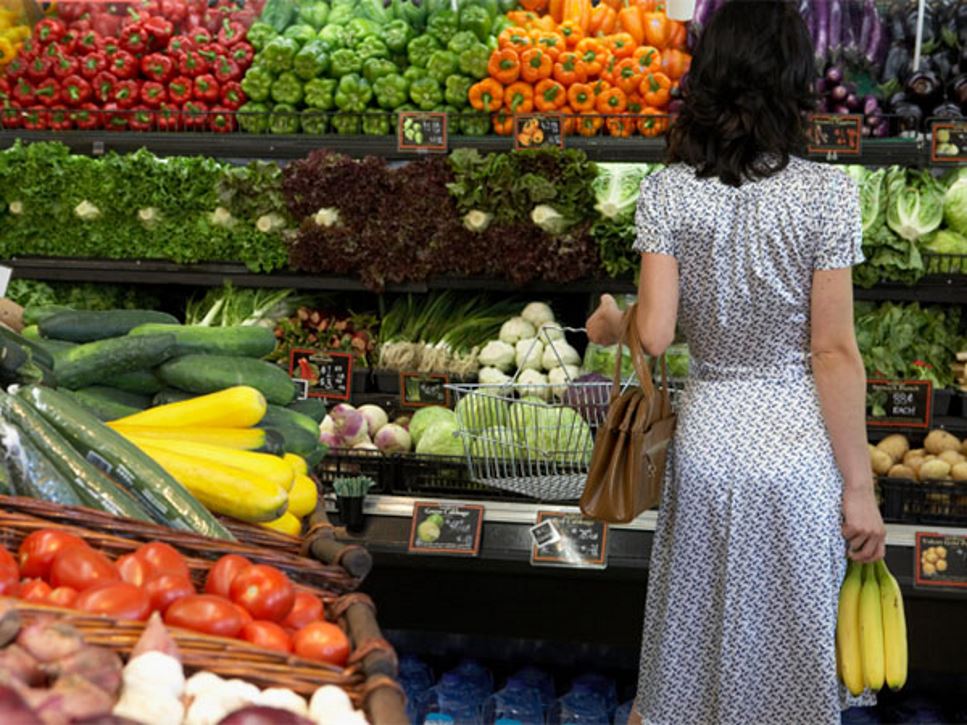In 2024, the United States Department of Agriculture (USDA), the Food and Drug Administration (FDA) and the Environmental Protection Agency (EPA) released a joint paper on strategies for reducing wasted food in America. They estimated that an average family of four spends about $1,500 on food each year that goes uneaten.
Why Does This Matter?
According to the USDA’s Thrifty Food Plan in 2021, a family of four may spend around $835 a month on groceries. This puts the cost of food waste at nearly the same amount as two months of food.
While there are many areas of food waste that are out of consumers' control, including food lost during production, processing and at market, we can be conscientious and take proper care of vegetables and fruits after they’re brought home. By doing so, we can save money, have a greater ability to feed people who are hungry and play a positive role in the reduction of food waste, which means a reduction in landfill use and the corresponding methane emissions.
Four Steps to Reduce Waste
1. Select Fruits and Vegetables Wisely.
- Buy just what you need. Beware of bulk discounts, especially on fresh produce, since it has a limited shelf life.
- Purchase fresh produce toward the end of shopping trips so cold foods stay cold longer.
- Shop farmers markets early because the heat of the day can alter quality or hasten ripening.
- Don't hunt for perfect. Embrace produce imperfections but steer clear of vegetables or fruits that are overly bruised or damaged.
2. Store Produce Properly.
- Store any perishable fresh produce, such as berries and leafy greens, in a clean refrigerator set to 40°F or below. If produce is refrigerated at a grocery store, it generally should be refrigerated at home to maintain quality.
- Some fruits produce a large amount of ethylene gas during ripening, which can ripen other produce when stored together. Produce that releases this gas include avocados, unripe bananas, nectarines, peaches, tomatoes, apples, apricots, cantaloupe, figs, kiwis and plums. In the refrigerator, store these fruits in a no-vegetables-allowed crisper drawer and away from fruit that doesn't need to be quickly ripened. Some vegetables also can leave distinctive odors that fruits absorb, affecting overall quality.
- After a fruit or vegetable ripens, it can be refrigerated. However, cold temperatures can cause flavor and moisture changes in some produce.
- Some produce has a short lifespan once ripened. Plan to use fruits such as apricots and berries and vegetables such as herbs, cucumbers, eggplant, green beans, leafy greens and mushrooms within a couple days of purchase.
- Fresh produce with a longer shelf life can wait to be consumed until after most of the other fruits and vegetables have been used. This includes apples, pears, beets, carrots, garlic, onions, potatoes and winter squash. Eating foods with a short shelf life first can be helpful in reducing food waste.
- Consider using bags or storage containers designed for produce to help prevent spoilage of other foods. However, don't store fresh produce in regular, air-tight plastic storage bags or containers as this can start the decaying process and promotes bacterial and mold growth.
3. Prepare Fruits and Vegetables Cleverly.
- Rinse or scrub and use the entire fruit or vegetable when possible, including all edible skins and seeds. Just cut away any bruises and blemishes.
- Have a plan, then prepare only what you need. Make half portions or develop a plan for using leftovers to help reduce excess food that might go to waste.
- If you're unable to enjoy all of the fresh produce you have on hand, make your own frozen food. Cut fruit and blanch vegetables before placing in air-tight containers for freezing. Blanching vegetables before freezing helps to slow down the spoiling process and preserve the color and texture of these foods.
- Be playful when produce is at the end of its edible life. Puree fruits into smoothies or vegetables into a hummus. Mash fruit to create fresh jam or pancake topping. Finely dice fruit to make a salsa. Sauté cut-up vegetables and toss with pasta or sprinkle atop cheese pizza. Roast vegetables and stuff into a burrito or sandwich wrap.
4. Compost the Scraps.
- Composting can help put food scraps to use and reduce methane emissions in landfills. Fruits, vegetables, coffee and tea all are good materials for compost.
By taking care of produce from purchase to plate, you can make a noticeable difference in the amount of food wasted in your home!
References
Find a Nutrition Expert
Looking for credible nutrition information and recommendations? The Academy of Nutrition and Dietetics' network of credentialed food and nutrition practitioners are ready to help!

